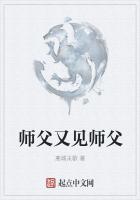It tells of a soldier standing in lamplight outside a barracks saying good-bye to his sweetheart,Lilli Marleen.A bugle sounds.The soldier yearns to stay with Lili,but the bugle calls again.As he leaves,he wonders aloud:Should anything happen to me,will another man stand under the lamplight with my love?Or will my ghost embrace her once again?
Posted to the Russian front,Leip never saw Lili or Marleen again.Some 20years later he included “Song of a Young Sentry”in an anthology of his poems.Berlin composer Norbert Schultze spotted the poem,set it to music,entitled it “Lili Marleen”and offered it to tenor Jan Bayern——who turned it down as “too simple.”
Schultze gave “Lili Marleen”to a nightclub singer named Lale Andersen,a striking blonde with a haunting,sensual voice that suited the songs melancholy.In 1939the Electrola Company recorded it.By then war had broken out,and only 700copies of “Lili”were sold——each worth about ‘300today.
The song remained in obscurity for two years.After Germany occupied Yugoslavia,the Wehrmacht opened Radio Belgrade to broadcast to its troops in the Balkans and North Africa.The station director had to scrounge some records.In a cellar at Radio Vienna,a soldier unearthed a dust-covered collection of recordings among them Andersen’s “Lili Marleen”.On the evening of August 18,1941,it went on the air for the first time.
My future brother-in-law,then a tank officer in the Africacorps,heard the song.“I was spell-hound,”he told me years later.So were thousands of other soldiers.Requests for repeats poured into Radio Belgrade.
The song also became a homefront favorite,broadcast regularly on Radio Berlin.“My son has fallen,”wrote one German mother to composer Schultze.“In his last letter he wrote of ‘Lili Marleen.’I think of him whenever I hear your song.”
The Africacorps‘commander,Gen.Erwin Rommel,shrewdly saw the song as a means to rally his men.He ordered “Lili”played every night.At 9:55each evening the song became Radio Belgrade’s sign-off and cast its magic spell almost until the war‘s end.
In his book The Great Lili,Carlton Jackson records that Nazi propaganda minister Josegh Goebbels detested “Lili.”He wanted morale-boosters like“Bombs on England”.He ordered the original master copy of Lale Andersen’s recording destroyed.When Stalingrad fell in January 1943,after 300,000German soldiers had been killed,Goebbels banned the song entirely,saying that “a dance of death roamed throughout its bard.”
But unknown to Goebbels,a second master had been sent to neutral Switzerland.Three days after his ban,“Lili”was back on the air.
Unable to stifle the song,Goebbels vented his anger on the singer.He ordered Lale Andersen put under surveillance and had rumors spread that she was a friend of Jews.Andersen did have close Jewish friends.To one in Switzerland,she wrote letters saying how much she wanted to get out of Germany.
In Italy,after a troop concert tour,Andersen decided to escape across the Swiss border by train.She was seized on a Milan station platform by two Gestapo agents.Back in Berlin,a Nazi official produced copies of her incriminating letter.Falsely accused of being a spy,she was placed under house arrest and told she might be sent to a concentration camp.
British Intelligence heard of her arrest.The BBC broadcast the news that the Nazi had put Germany‘s beloved singer into a concentration camp.This British intervention may have helped save her.The Gestapo seemed to lose interest in her,and she slipped away quietly to her grandparents’home on a North Sea island,staying there until the war ended.
As novelist John Steinbeck once wrote,“Songs have a way of leaping boundaries.”The German song was “captured”by the British fighting Rommel in the desert.But like Goebbels,British army brass disliked the song.It was not the right thing for their soldiers to march to –especially singing in German.
Back in England,Carlton Jackson relates,some Eighth Army veterans were belting out “Lili Marleen”one night in a pub frequested by song publisher J.J.Phillips.He remarked that village police might think they were German spies.“If you‘re so fired up about it,”a soldier yelled,“why don’t you write us some English words?”
Phillips took up the challenge with the help of songwriter Tommie Connor.Lili became “My Lilli of the Lamplight”;“Marleen”changed to “Marlene”;and out went the fog and the spirit rising from the grave to kiss her.The new Lilli was the girl left behind,waiting wistfully for her soldier to return safely.
Underneath the lantern by the barrack gate,
Darling,I remember the way you used to wait;
It was there that you whispered tenderly,
My Lilli of the lamplight,
My own Lilli Marlene.
It was an immediate hit.Within six months sheet-music sales topped half a million copies.The haunting ballad expressed all the fears of a soldier far from home,yearning to be in his love‘s arms.Adaptations of Leip’s poem have appeared in more than 40languages.
Over the decades moviegoers have heard the straight version of “Lilli”in dozens of feature films and documentaries.And she is still heard today whenever old soldiers gather to sing of loneliness and loves gone by.
Why did the song steal so many hearts?Lale Andersen‘s simple reply was:“Can the wind explain why it becomes a storm?”Amid the brutal,ugly cacophony of war,Lilli Marlene always struck a sweet and tender note.She belongs to all nations.
夜幕笼罩着北非沙漠。我们营的坦克围成了一个保护圈,我的一帮战友围站在一个收音机旁。当我走近时,其中一位将手指放在嘴唇上,示意我别出声。
从收音机里传来号角声,随后传来一个女人温柔缠绵的歌声,她在用德语唱着一支我有生以来听过的最难以忘怀的曲子:
Vor der Kaserne
vor dem grossen Tor
stand eine Laterne
und steht sie noch davor…
我不明白歌词是什么意思,我们大多数人都不明白。因为我们不是德国的非洲军团,而是英国第八军沙漠之鼠。但我们仍被这神秘的歌声所吸引,不知怎么的,这个声音已经深深地印在了我们的脑海和记忆里。
仅仅咫尺之遥的地方,德国士兵也正在收听这同一首歌曲,和我们一同感受着孤独与渴望。这是1942年的春天。对阵双方的士兵都远离家乡,但我们都爱着歌中的那一个姑娘,几乎每个国家中都有千百万的士兵在爱着她而且直到今天他们仍在歌唱着她。她的名字叫丽莉·玛琳。















